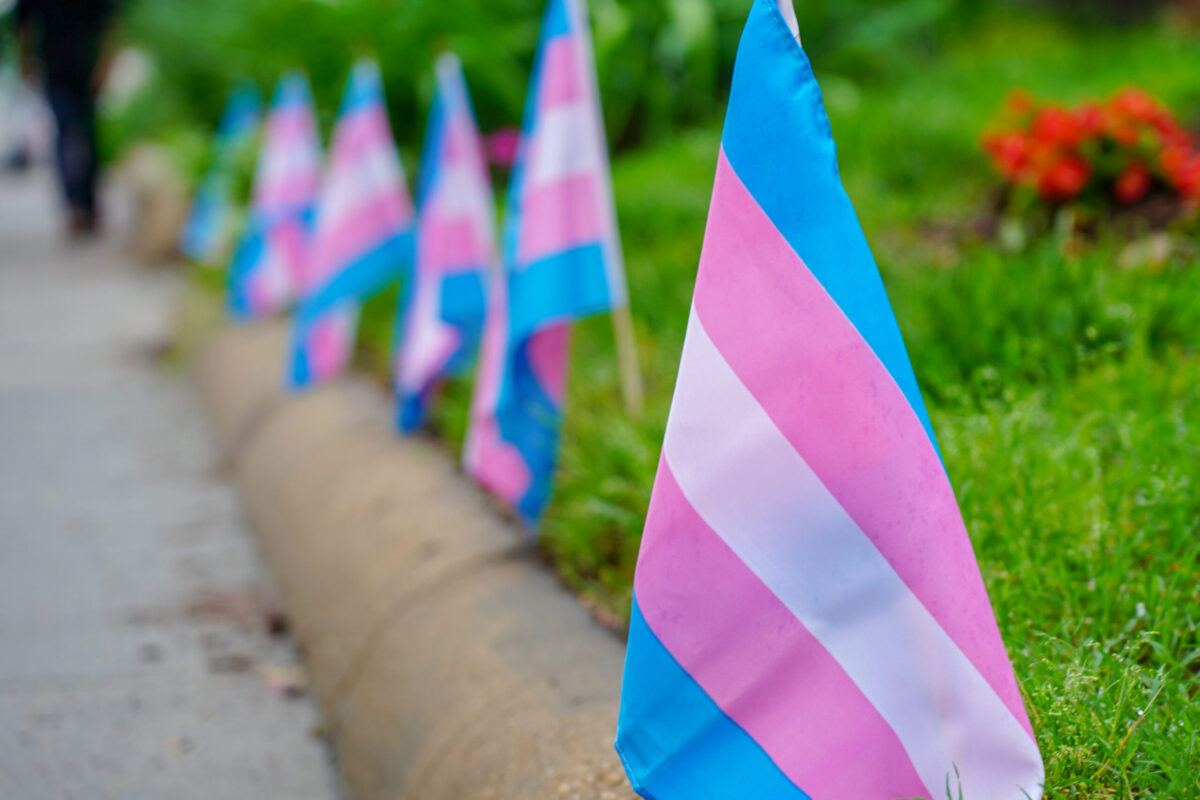20th of November 2025, marks the 26th Trans Day of Remembrance (TDOR). In this day, we honor the memory of the trans people whose lives were lost in acts of anti-trans violence.
The Trans Day of Remembrance was established on the 20th of November 1999 in the United States by Gwendolyn Ann Smith, in the memory of Rita Hester. Rita Hester was a Black trans woman and an active member in the trans community of Boston, providing education around trans issues.
Back then, Gwendoly Ann Smith declared: “Trans Day of Remembrance seeks to highlight the losses we face due to anti-trans bigotry and violence. I am no stranger to the need to fight for our rights, and the right to simply exist is first and foremost. With so many seeking to erase trans people — sometimes in the most brutal ways possible — it is vitally important that those we lose are remembered, and that we continue to fight for justice.“
These words still resonate with the situation of trans people 26 years later, then trans people are still exposed to a multifactorial violence, which makes their existence a (political) fight.
Indeed, the Trans Murder Monitoring project reported 281 murders of trans and gender diverse people in the world between October 1 2024 and September 30 2025. Moreover, this research project has identified, analyzed and reported more than 5000 murders against trans people in the world since 2009, and 118 in Europe. Trans women are even more exposed to this violence: they constituted at least 53% of the murder cases identified by the TGEU. Trans BIPOC were also highly targeted, as they represented at least 73% of the murdered trans people. Moreover, 23% of the murders were identified to be against sex workers. Finally, the data from 2025 reveals that trans activists are becoming a specific target of trans murder.
These numbers are however only the tip of the iceberg, as murder of trans people are highly underreported. This is partly due to the fact that these murders are not categorized as murders of or against trans people, as trans people are often misgendered and their gender not recognized by the state institutions responsible of establishing criminality statistics. Moreover, violence against trans people is also multifaceted and often results in severe mental health consequences, including high rates of suicide among trans people.
Indeed, trans people are exposed, in the public as well as in the private space, to discriminations, harassment, insults, psychological as well as physical and sexual violence. In a survey conducted by the EU Agency for Fundamental rights in 30 European countries among more than 100 000 LGBTQ+ individuals, more than 60% of trans of 51% on non-binary and gender diverse respondents reported having lived discrimination in the past year.
Moreover, 26% of trans women and 23% of trans men declared that they have been attacked in the last five years, while 2 in 3 trans and non-binary respondents declared that they had experienced harassment the year before taking the survey.
However, less than 20% of the respondents declared that they had reported this violence to a state institution.
This is because trans people also face violence from the institutions that are, in the states’ narrative, supposed to help them, for example, the police institution. Moreover, in the study cited previously, more than one third of trans respondents declared that they had experience discrimination from the health care system the year before taking the survey.
The systemic discrimination and violence that trans people are exposed to -whether in the private sphere from family members, in the public sphere, or through state institutions- result in severe mental health consequences and higher suicide rates among trans people. Current research findings estimate that between 18 and 45% of trans young adults and youth have attempted suicide in their lifetime. Moreover, in the survey conducted by the EU Agency for Fundamental rights, more than one in two trans and non-binary respondents declared they have had suicidal thoughts the year before taking the survey.
As already mentioned, numbers on crimes against trans people are lower than the reality. Moreover, this summary does not exhaustively mention the different forms of violence trans people have to face every day. However, it depicts how violent states and societies still are toward trans people, 26 years after the first Day of Trans Remembrance. It is all the more important to acknowledge and remember this systemic violence as anti-trans laws, state-driven persecution, and measures that increasingly aim at the erasure of trans people continue to grow, as illustrated by the in anti-trans legislation in the US, and, for example, the German law project to register trans people and make their data accessible to states authorities.
On this Trans Day of Remembrance, we gather, mourn, and honor the memory of the trans people whose lives were lost in acts of anti-trans violence. Some also consider this day as a day of fight, as being trans is, in fact, an act of resilience and fighting. In Berlin, several events are organized today. Here is a non-exhaustive list of events you can attend to mourn and fight:
- Berlin, S+U Neukölln. 17:30 à Rally, 18:30 Start of the protest. More infos here.
- Berlin, Alice-Herz-Platz, 18:00. More infos here.
Note: Time and locations might be subjected to changes, follow news from the organizers to be up to date.




